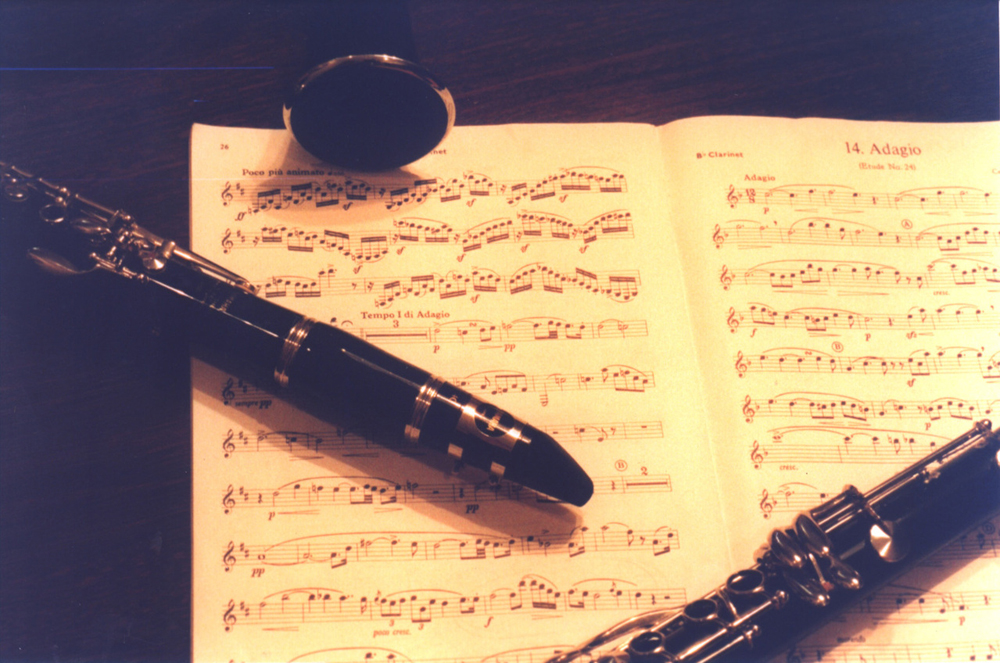Column: It’s hard to believe, but I once played the clarinet

My wife always fires back the same wisecrack each time I make a joke about her joining a concert band. For example, we walked past the Patchogue Theatre for the Performing Arts during Tuesday’s Fourth of July parade, where a concert band had assembled in front to fill the morning air with patriotic tunes as the fire trucks and dancers and Boy Scouts marched by.
I made my usual comment: “Want to grab your piccolo or flute and join them?”
And sure enough, she shot back: “Want to grab your clarinet?”
My joke was foiled again.
Yes, I once played the clarinet, the woodwind instrument that peaked in popularity sometime around the Benny Goodman era of the ’30s and ’40s.
You could understand, though, why I’d suggest that my wife join one of these bands. She’s a talented musician who can play multiple instruments. She originally went to college for music at SUNY/Potsdam’s acclaimed Crane School of Music before switching to a different major. She owns a flute that cost more than my car. And she can still actually play.
Me? Well, let’s just say I did, in fact, play an instrument once. I haven’t picked up a clarinet since sometime toward the end of my senior year in high school in 2002. I’d hate for anyone to have to hear what I sound like today after a 15-year hiatus.
The clarinet wasn’t my first choice way back in fourth grade, when as little kids we’re forced to choose from among a dozen or so instruments the one we’ll want to play for the next nine years. I figured the saxophone would be fun and it looked cool. The teacher, however, had other ideas. My hands were too small to hold the saxophone properly, I was told, and the clarinet was offered as a suitable replacement.
So, for the next nine years, I became a clarinet player.
I think back on all those years spent as a “musician” and marvel at how I managed to do it. When I look at a sheet of music now, it may as well be hieroglyphics. I couldn’t tell the difference between G-sharp and A-flat (as an editor points out, they’re the same note) any more than I could probably decipher C++ computer language.
Years of musical knowledge slowly eroded away to where, if I wanted to play an instrument now, I’d be back at square one. I don’t believe I had any true musical talent, but I was still pretty good at the time. Up until my early high school years, I took playing an instrument fairly seriously. I competed at the New York State School Music Association in either eighth or ninth grade and earned an “excellent,” which if I remember correctly was the second best score at the time, below “outstanding.”
I even played in our school’s clarinet choir, an extracurricular activity. As the high school years passed, I continued to play and earned a spot in our school’s wind ensemble, which featured the best musicians on each instrument. (I was in the third section of clarinet players, but nevertheless in the band.)In my senior year, the teacher who led the symphonic band, which was where all the other students played, asked if I’d be interested in playing bass clarinet. They needed another player and the bass clarinet was essentially the same instrument, just larger. So I agreed, and that year I played in wind ensemble during first period and in symphonic band during ninth period.
It was mostly fun at that point. I never bought an expensive clarinet of my own or took private lessons during high school. By the time I graduated, I rarely even practiced outside class.
As a kid, you never truly appreciate the vast array of things you have the opportunity to do. Playing an instrument is one. In the day-to-day grind of being an adult, it’s hard to even comprehend a time where an hour or so of my day was dedicated to playing the clarinet.
It’s an amazing opportunity for a kid — and the benefits of learning music are plentiful. A Time magazine article from 2014 noted: “Science has shown that when children learn to play music, their brains begin to hear and process sounds that they couldn’t otherwise hear. This helps them develop ‘neurophysiological distinction’ between certain sounds that can aid in literacy, which can translate into improved academic results for kids.”
I may never pick up a clarinet again, but I’ll always look back fondly at the time I spent playing. Even if that leads to a few jokes from my wife.
Photo credit: Freeimages.com/Tyson Battersby
 The author is the editor of the Riverhead News-Review and The Suffolk Times. He can be reached at 631-354-8049 or [email protected].
The author is the editor of the Riverhead News-Review and The Suffolk Times. He can be reached at 631-354-8049 or [email protected].









